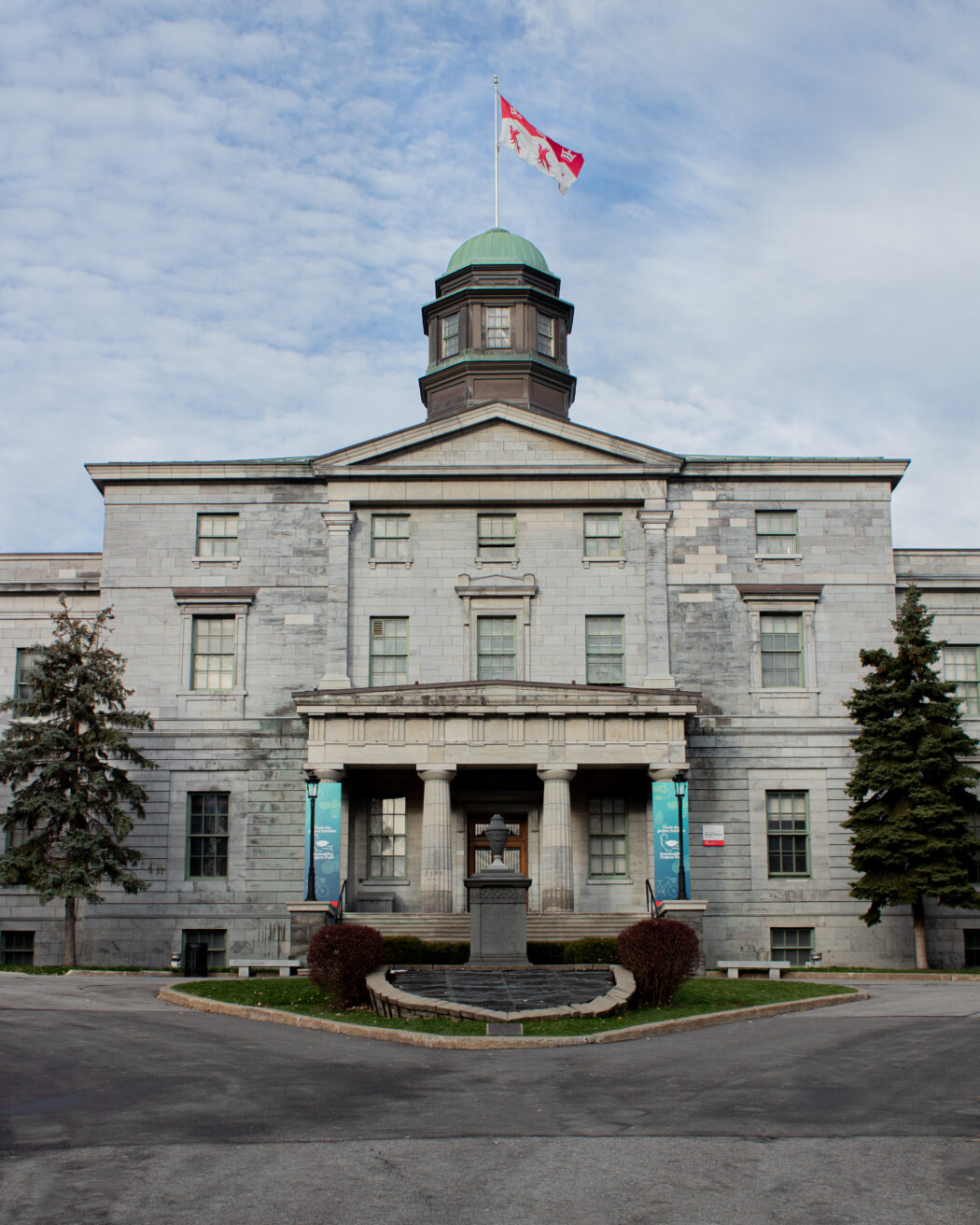Thanksgiving: the holiday for food, family, and good natured debates (if you’re lucky) about current issues. This year, the holiday brought me an interesting conversation with my aunt and uncle — the head of the social work department and a professor of psychology at a small liberal arts college respectively — about the rapid increase in the number of their students requiring academic accommodations.
Hearing about this increase didn’t surprise me, as this is a phenomenon that I am highly familiar with at McGill. Almost everyone I know struggles with anxiety, and many of my friends and peers have accommodations, whether it be note-taking accessibility or extra exam time. According to multiple studies, many universities have encountered an exponential rise in academic accommodation requests. A 2017 study conducted at the University of Winnipeg reflects the scale at which academic accommodations have exploded in recent years. Between 2012 and 2017, the school had a 70 percent increase in the number of accommodated tests or exams. The Academic Accommodation Support office at the Toronto Metropolitan University (formerly known as Ryerson) reported a twelve percent increase in students registered in the program — per year. And this pattern of increasing academic accommodations is not unique to Canadian schools; it’s a global phenomenon, resulting in institutions across the world being inundated with students requiring such assistance.
This uptick of academic support requirements directly reflects both a climate of increased mental health and inclusivity and an ever-increasing epidemic of mental health crisis among young adults. So, when my uncle expressed frustration that academic accommodations were “getting out of control,” it struck a bit of a nerve. Why shouldn’t people advocate for their needs? Why should students have to sacrifice their mental health to meet the unrelenting onslaught of deadlines and external forms of academic validation? But, as our conversation continued, I started to see his point and my aunt’s; their frustration wasn’t coming from a lack of compassion for their students, but from a concern for the school’s capacity to handle so many requests.
Why shouldn’t people advocate for their needs? Why should students have to sacrifice their mental health to meet the unrelenting onslaught of deadlines and external forms of academic validation?
Offering a professor’s perspective, my uncle noted how much the numbers have changed in the past decade, explaining that while ten years ago only one or two students in a given class might have required special accommodations, it is now the status quo for a pretty significant proportion of individuals (specific numbers vary by class size) to request accommodations or modifications. These accommodations include extra time on exams, extensions for assignments, and access to notes before class. He further explained the impact that this phenomenon is having on teaching staff, who, already stretched thin, are now responsible for keeping track of accommodation needs, modifying assessment procedures, and creating accessible slide decks or detailed notes prior to lectures, all while retaining academic integrity. My uncle, who conducts his own lab research, teaches multiple courses, and supports three kids with rigorous school and sports commitments of their own, said that managing these accommodations sometimes adds hours to his already packed days.
My aunt further provided insight into the challenges that school social workers have faced in addressing such a sharp increase in academic accommodation requirements, and the difficulties of supporting such a large number of students with vast discrepancies in issues. She explained that the fairly small social work team at her University has become increasingly inundated with students requesting mental health support and accommodations, with reasons ranging from stress over a bad roommate situation to episodes of psychosis — a mental health crisis of a severity that school social workers are neither trained nor equipped to properly deal with. A widespread allocation of academic accommodations to such an extensive array of issues certainly isn’t a catch-all solution (seriously, how does one decide how to allocate accommodations for such a disparity in issues without invalidating one struggle as less significant than another?). But it’s often the best solution that universities can offer with limited resources and numbers (which in itself speaks to a broader issue of academic institutions’ capabilities to handle mental health issues). However, this in turn only perpetuates the issue of request-beyond-capacity, as ever increasing numbers of students file into the department, desperate for any aid they can get.
Seriously, how does one decide how to allocate accommodations for such a disparity in issues without invalidating one struggle as less significant than another?
This conversation certainly reframed my opinion on academic accommodations and led me to consider the subject in a new light. While I still believe that students who need academic aid should have access to it, whether they are struggling with mental health or have learning divergences that are not congruent with a one-size-fits-all capitalism-driven education model, I now have a greater understanding of the challenges of this aid model, and certainly more empathy for the impact that such a rapid and widespread increase in accommodation has on those responsible for awarding it.
My aunt and uncle are certainly not alone in wondering if academic accommodations are a viable solution to tackling mental health crises among university students. Many experts question the value and validity of academic accommodations, and suggest that such supports don’t alleviate anxiety but amplify it. A study conducted by Queen’s University concluded that often accommodations do not teach students to cope with anxiety, but instead teach escape and avoidance, both of which tend to heighten feelings of anxiety. Professor Haland at the University of Agder in Norway voices similar concerns, saying that “We adults have too little tolerance for [students] being uncomfortable.” Additionally, questions of academic integrity are often tied to critiques of accommodations. Queen’s professors Benjamin J. Lovett and Allyson G. Harrison state that “accommodations are frequently overused,” while Queen’s University Law professor Bruce Pardy went so far as to claim that “Extra time for mental disabilities is as unfair to other students as a head start would be to other runners.” It certainly begs the question: Is this accommodation uptick the result of an increasing climate of awareness and advocacy for mental well-being? Or are academic accommodations simply a way for coddled students to hack the system and evade the discomfort of deadlines?
Is this accommodation uptick the result of an increasing climate of awareness and advocacy for mental well-being? Or are academic accommodations simply a way for coddled students to hack the system and evade the discomfort of deadlines?
I don’t think these questions can be considered in a mutually exclusive manner. Perhaps certain students do take advantage of accommodations, and perhaps this system does encourage a dynamic in which students are too comfortable denying discomfort of any kind. But for each of these situations, there are countless students in crisis with no better option. For example, Professor Haland suggests cognitive behavioural therapy, a method rooted in exposure therapy, as an effective alternative to accommodations. However, as the mental health crisis burgeons, therapy is becoming increasingly inaccessible. Wait times for public support can be in excess of a year; private practices are similarly backed up and charge prices that are not feasible for many students. Student wellness services don’t fare much better. At McGill’s Student Wellness Hub, it can take weeks if not months to get an appointment, and once you do, it’s more of a one-and-done deal than an option for continuous support. School support systems simply aren’t equipped to provide extensive therapy for the vast number of students who need it.
With all their drawbacks, academic accommodations are certainly not the most effective or efficient manner of aiding students, and probably should not be used as the catch-all solution they seem to have become. Ultimately, the true solution would likely be a holistic and systemic transformation of learning models, as well as of the ways academic institutions are equipped to deal with mental health crises. As this is certainly an unlikely undertaking, at least for the near future, the removal of academic accommodations would do much more harm than good. For stressed and sleepless students, a request for academic accommodation may be the easiest solution. For resource-scarce social support departments, accommodations may be the best option they can provide to the masses of students requiring care. While it is obvious that academic accommodations are not a fix-all solution, they are perhaps the best option in a broken system.








